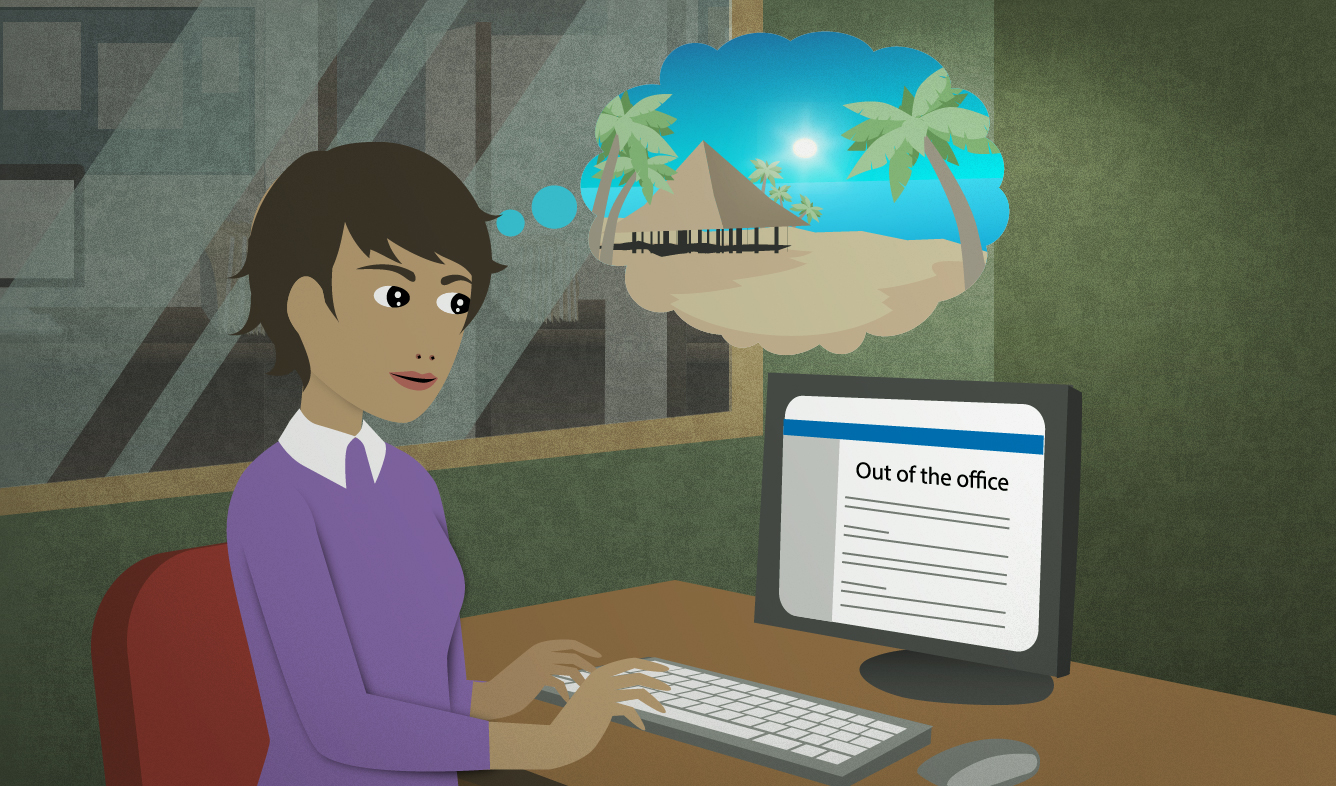“Please note that I will be out of the office starting Friday, December 7, through Tuesday, December 11.”
You're taking a few days off of work. It's the end of the day, and you're setting your email auto-responder message. You write this.
Please note that I will be out of the office starting Friday, December 7, through Tuesday, December 11.
Want Video and Sound? Follow us on YouTube

I will be out of the office
This is the standard expression to write in an e-mail "out-of-office" message:
I will be out of the office.
You don't usually use "will" to talk about your future actions, but in more formal English you can. In more casual situations it's more common to use "going to". For example, if you tell a coworker about your vacation, a good way to explain it is:
I'm going to be out of the office next week.
Please note that (sentence)
This is a formal way to direct people's attention to some information. For example, if you're selling something on the internet that has to be mailed, your site might have this sentence:
Please note that delivery may take up to three weeks.
One reason to use "Please note that..." is because it can sometimes seem rude if you say or write things directly without any introduction. For example, if you're making a short introduction at the beginning of a conference, you might announce:
Food and drinks are not allowed in the auditorium.
But that could sound a little too strict. This sounds nicer:
Please note that food and drinks are not allowed in the auditorium.
through (a date)
Use the phrase "through ___" to talk about a range of days or dates:
A: When is it?
B: It's Monday through Thursday.
In this example, the event that they're talking about is happening Monday, Tuesday, Wednesday, and Thursday.
